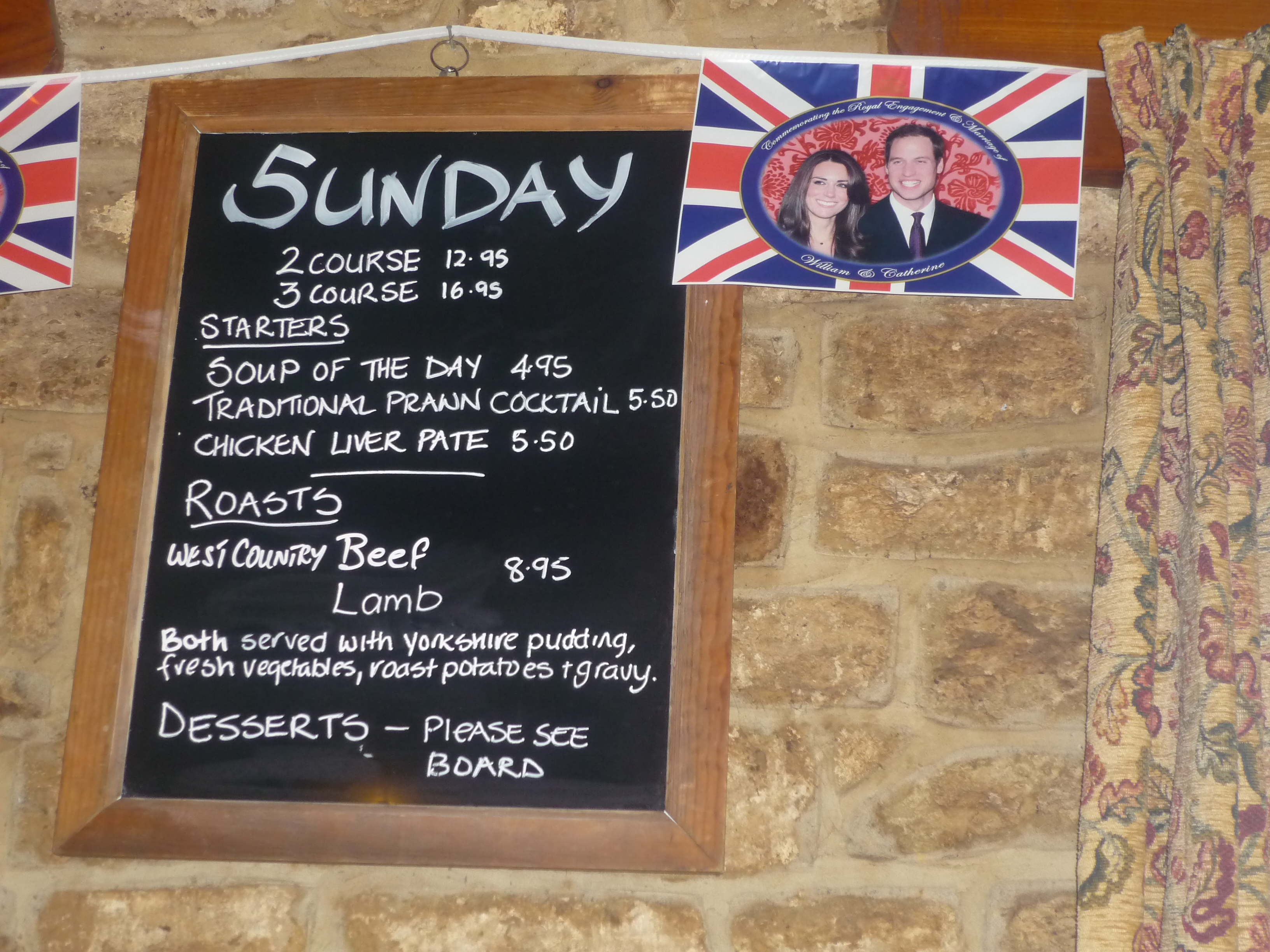Things I Learned at the Local Pub
British cuisine is improving. Yes, I mean it. They are trying new dishes with long names and many ingredients, such as “Smoked haddock Scotch egg, truffled cream leeks” or “Lamb rump, crispy shoulder, peas and wild garlic, mint crushed potatoes”, the kind of stuff that is also popular in Catalonia nowadays. I dare to say I love English food. Pubs also have good wines and champagnes, today you can have a glass of Rioja wine at a pub in a small village in the county of Wiltshire. Fish and chips and beer are obviously always there. It’s a pity I don’t like beer and never drink a pint when I am in the UK.
It is obvious that, while going through the dishes in a menu, you learn new words-carvery, that special lunch pubs serve you on Sunday- and refresh some you had temporarily forgotten –coleslaw is a good example- because there is not an exact equivalent in your home country. You become familiar with the fact that there exist different types of pubs, depending on who or what they are friendly to: all over the UK you can find pet-friendly, children-friendly or even family-friendly pubs (hyphenated adjectives are among my favorite English words).
But there are two language skills you must practise at these places: listening and speaking. Conversations at the local pubs are powerful language-boosters. To name but only a couple of situations: imagine when you listen-deliberately- to a conversation about football between two guys who are under the effects of booze. I know nothing about this massively popular sport and you can imagine how demanding it can be to decipher the broken sentences these local drunk men (yes, I love the word local, both as an adjective and as a noun) are saying. As a non-native speaker you feel on top of the world, a hero of oral comprehension when you can make out the global message of their conversation. The other example is when this young teenage waitress comes to your table to see what you want to order and, oh, my gosh!, she is chewing gum and syllables at the same time. It takes a lot of concentration and imagination to understand her. Why don’t they use these materials as listening activities in our schools? Well, to tell the truth, I already know the answer. Anyway, I love these challenges.
Children make good language teachers, too. When you go to one of those family-friendly pubs with your kids and it happens to be Easter time, you will probably find yourself in the middle of an egg hunt during which your own children will mix and play with the other kids to find the hints to the Easter hunt. One or two of them will probably ask for your help to try and solve the hints. And they will do as children usually do, spontaneously and using some words they have just made up; the same way young Spanish children say rompido instead of the correct past participle roto.
Last but not least, be aware of the cultural background that surrounds you at the pub. Do not expect people to behave our way at a British pub. The waiter does not usually come to your table, it is just the other way round, it is the customers-or patrons– who ask for their drinks. And, yes, you feel so embarrassed the day you find it out, after everyone else in the pub has been looking at you for a while with that what-the-f***-is-she-waiting-for look on their faces!
It’s amazing the amount of information you can gather with a single visit to the pub. So find a good local pub, order your beer, sit back and relax. You’re learning English!
